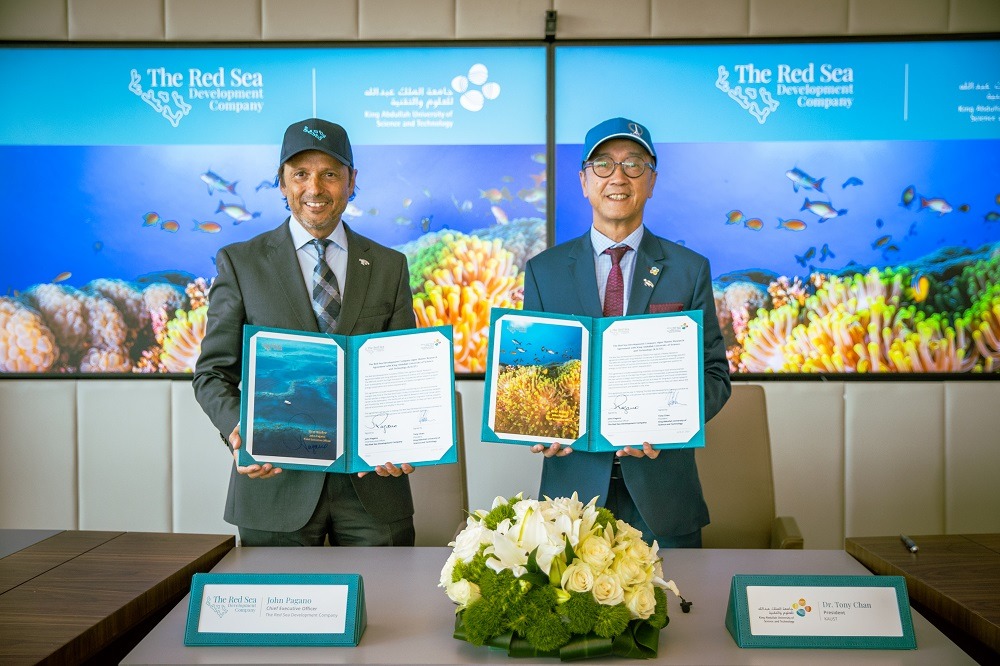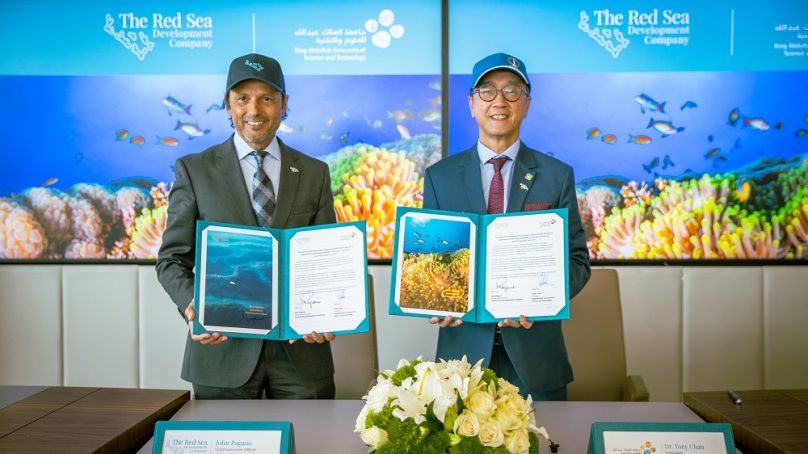 The Red Sea Development Company (TRSDC) signed a master research agreement (MRA) with King Abdullah University of Science and Technology (KAUST).
The Red Sea Development Company (TRSDC) signed a master research agreement (MRA) with King Abdullah University of Science and Technology (KAUST).
The agreement, which is open for renewal after five years, follows extensive collaboration between the two organizations on flora and fauna assessments, marine spatial planning and an international competition called the Brains-for-Brine Challenge. The MRA cements the legal framework for mutually beneficial research projects on topics including, sustainability of marine environments, waste management systems, sustainable food production, energy conservation and carbon sequestration.
The Red Sea coast is home to a vast array of thriving coral reefs, mangroves, seagrasses and the associated richness of biodiversity. The collaborative research and development of both parties will inform and guide efforts to go beyond environmental protection and ensure that these critical habitats are enhanced to support the growth of flora and fauna populations including critically endangered species, like the Hawksbill turtle.
Establishing scientific monitoring to track environmental changes over time is one of the first assignments already underway as part of the new research agreement and will be vital in helping TRSDC achieve its commitment to deliver a 30 percent net conservation benefit by 2040.
As another example of how KAUST is significantly influencing environmental stewardship for The Red Sea Project and AMAALA, 11 of the current staff of the TRSDC Department of Environment and Sustainability have roots at KAUST, including seven that earned doctoral degrees at KAUST and two that completed postdoc appointments at KAUST.
A KAUST-TRSDC working group is presently planning for a joint Marine Research and Coral Conservation Center at The Red Sea Project site. The space will act as a base for long-term marine research and monitoring and, in time, will open to future visitors so they can learn about the natural environment and wildlife in the area.
KAUST researchers and scientists supported the development of the destination’s master plan with the delivery of an extensive Marine Spatial Planning (MSP) exercise. As a result, 75 percent of the project’s islands will be left undeveloped in a conservation-to-development ratio unprecedented in any documented coastal development plan in the world.


















